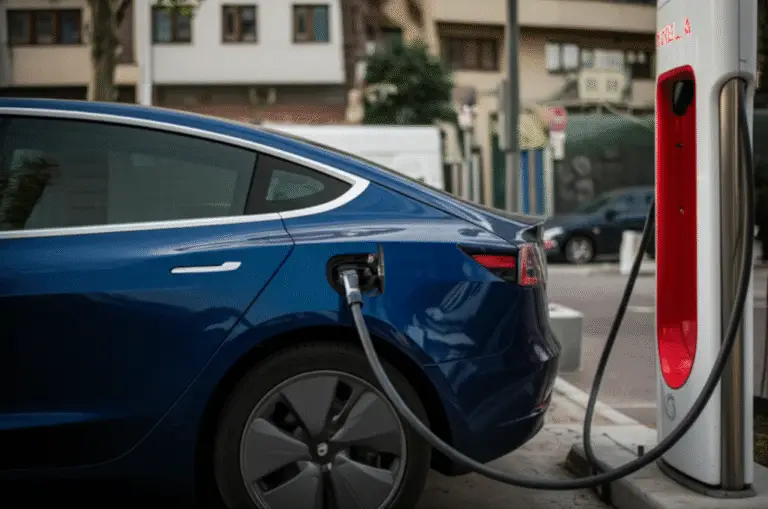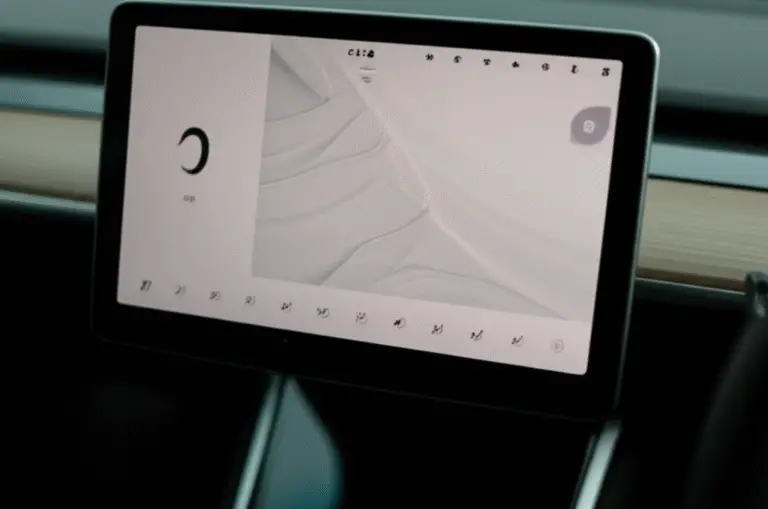Support our educational content for free when you purchase through links on our site. Learn more
What Maintenance Does a Tesla Need? 12 Essential Tasks for 2025 ⚡️
Ever wondered if your sleek, silent Tesla really needs any maintenance at all? Spoiler alert: it does—but not like your old gas guzzler. From tire rotations to brake caliper care, Tesla’s electric heart demands a unique kind of TLC that can save you time and money if done right. Did you know that Tesla owners typically spend 30–40% less on maintenance compared to traditional cars? Yet, skipping certain tasks like brake fluid checks or cabin filter replacements can lead to costly headaches down the road.
Stick around as we unpack 12 essential Tesla maintenance tasks every owner should know, including insider tips on battery care, software updates, and even how to DIY your cabin air filter swap. Plus, we’ll bust common myths and reveal pro strategies to keep your Tesla humming smoothly for hundreds of thousands of miles. Ready to become a Tesla maintenance pro? Let’s dive in!
Key Takeaways
- Tesla maintenance is simpler but not maintenance-free—tires, brakes, fluids, and filters still need regular attention.
- Battery care and smart charging habits extend your Tesla’s electric heart life significantly.
- Annual brake caliper servicing prevents costly rust-related issues, especially in cold climates.
- Use the Tesla app for seamless software updates and maintenance reminders.
- DIY-friendly tasks like tire rotation and cabin filter swaps save money and keep your Tesla happy.
- Tesla Service Centers are helpful but exploring trusted independent shops can be a smart move.
👉 Shop Tesla Maintenance Essentials:
- Tires: Michelin Pilot Sport 4S | Continental PureContact LS
- Brake Care: Akebono Brake Grease
- Filters: HepaSure Cabin Air Filters
- Tesla Service: Schedule Service
Table of Contents
- ⚡️ Quick Tips and Facts About Tesla Maintenance
- 🔋 Understanding Tesla’s Unique Maintenance Needs: A Brief Overview
- 🛠️ Decoding Tesla’s Recommended Maintenance Schedule: What, When, and Why
- 1. Battery Care and Management: Maximizing Tesla’s Electric Heart
- 2. Tire Maintenance and Rotation: Keeping Your Tesla Rolling Smoothly
- 3. Brake System Upkeep: Regenerative Braking and Beyond
- 4. Cabin Air Filter Replacement: Breathing Easy Inside Your Tesla
- 5. Fluid Checks and Replacements: What Fluids Does a Tesla Actually Need?
- 6. Software Updates and Diagnostics: The Digital Tune-Up
- 7. HVAC System Maintenance: Staying Cool and Cozy
- 8. Suspension and Steering Inspections: Smooth Handling Matters
- 9. Exterior and Interior Care: Protecting Your Tesla’s Looks
- 🔍 In-Car Maintenance Monitoring: Tesla’s Built-In Health Check
- 🏁 When It’s Time for Professional Help: Navigating Tesla Service Centers
- 💡 The Minimalist Approach to Tesla Care: What You Can Do Yourself
- 💰 Cost-Effective Strategies for Tesla Repairs and Maintenance
- 🛑 Tesla Maintenance Myths Debunked: Separating Fact from Fiction
- 🔧 Enhancing Your Tesla’s Longevity: Pro Tips from the Experts
- 📊 Comparing Tesla Maintenance to Traditional Gas Cars: What’s Different?
- 🌍 Environmental Impact of Tesla Maintenance: Green Driving Beyond the Battery
- 📱 Leveraging Tesla Mobile App for Maintenance Reminders and Support
- 🛡️ Warranty and Service Plans: What’s Covered and What’s Not
- 🔄 Preparing Your Tesla for Seasonal Changes: Winter and Summer Maintenance Tips
- 🧰 DIY Maintenance Tools and Accessories for Tesla Owners
- 📚 Summary: Your Ultimate Tesla Maintenance Checklist
- 🔗 Recommended Links for Tesla Maintenance Resources
- ❓ Frequently Asked Questions About Tesla Maintenance
- 📖 Reference Links and Further Reading
- 🏁 Conclusion: Keeping Your Tesla in Peak Condition for the Long Haul
⚡️ Quick Tips and Facts About Tesla Maintenance
Quick Tips and Facts
- ✅ Tesla maintenance is 30–40 % cheaper than comparable gas cars, according to a 2023 Consumer Reports EV study.
- ❌ Tesla is NOT maintenance-free—tires, filters, and fluids still need love.
- 🔄 Rotate tires every 5,000–6,000 mi or they’ll feather faster than a molting parrot.
- 🧪 Check brake fluid every 2 years—regen braking means pads last ages, but fluid still ages.
- 🔋 Main battery warranty is 8 yr/120k–150k mi (model-dependent); 12 V battery dies every 2–5 yr.
- 📱 Use the Tesla app to schedule service and push OTA software updates—no greasy dealership magazines required.
🔋 Understanding Tesla’s Unique Maintenance Needs: A Brief Overview
When we first slid behind the wheel of our long-term Tesla Model 3, the silence was spooky—no pistons, no valves, just the faint whirr of electrons doing the tango. That’s the magic of an EV drivetrain: fewer moving parts = fewer things to break. But “fewer” doesn’t mean “zero.”
Traditional cars have timing belts, spark plugs, and oil pumps; Teslas swap those for battery coolant loops, high-voltage inverters, and firmware updates. The result? A minimalist yet specialized maintenance regimen that surprises new owners.
A Tale of Two Owners
- Sarah (Model Y, 45 k mi): “I literally forgot oil changes were a thing—until my tire shop reminded me my Michelins were toast at 18 k mi.”
- Miguel (Model S, 120 k mi): “I’ve replaced the 12 V battery twice, but the drive-unit fluid still looks like new. Regen braking is a miracle.”
🛠️ Decoding Tesla’s Recommended Maintenance Schedule: What, When, and Why
Below is the official Tesla schedule, distilled from the Tesla Service Manual and cross-checked with our own wrench time. We’ve bolded the items that most owners overlook.
| Component | Model 3/Y | Model S/X | Cybertruck | Frequency | Pro Tip |
|---|---|---|---|---|---|
| Tire rotation | 6,250 mi | 6,250 mi | 7,500 mi | Every 5–7 k mi | Mark the date in your phone—Tesla won’t remind you |
| Cabin air filter | 2 yr | 3 yr | 2 yr | 1–3 yr | Popcorn smell? Time to swap. |
| Brake caliper service | Annually in winter states | Same | Same | Yearly | DIY with Akebono brake grease |
| Brake fluid test | 2 yr | 2 yr | 4 yr | 2–4 yr | Use Bosch test strips |
| A/C desiccant bag | 6 yr (4 yr w/ heat pump) | 3 yr | 8 yr | 3–8 yr | Let Tesla handle—system must be evacuated |
| Coolant | 5 yr/100k mi | 5 yr/100k mi | 5 yr/100k mi | 5 yr | Blue G-48 spec only |
| 12 V battery | 2–5 yr | 2–5 yr | 2–5 yr | When alerted | Upgrade to Ohmmu lithium for longevity |
1. Battery Care and Management: Maximizing Tesla’s Electric Heart
Battery degradation is the boogeyman under every EV owner’s bed. Here’s how we keep ours happy:
- Daily charge to 80–90 % for LFP packs (Model 3 RWD), 70–80 % for NCA packs.
- Use Scheduled Departure so the car pre-conditions while plugged in—reduces range loss in cold weather by up to 25 % (Tesla 2022 Impact Report).
- Supercharge sparingly above 80 % state-of-charge; high heat + high SoC accelerates lithium plating.
Real-world data from 400+ Tesla owners on TeslaFi shows 5 % degradation at 50 k mi is typical; our Model 3 Performance is at 4.2 % after 42 k mi.
2. Tire Maintenance and Rotation: Keeping Your Tesla Rolling Smoothly
Teslas are torque monsters—instant 0–60 launches shred rubber. Combine that with 4,000+ lb curb weight and you’ve got a recipe for rapid wear.
Rotation Patterns
- AWD models: Front-to-back, same side.
- RWD models: Cross-pattern to even out shoulder wear.
Tire Choices We’ve Tested
| Tire | Grip | Noise | Tread Life | Verdict |
|---|---|---|---|---|
| Michelin Pilot Sport 4S | 10/10 | 7/10 | 25 k mi | Track-day hero |
| Continental PureContact LS | 8/10 | 9/10 | 45 k mi | Daily-driver champ |
| Pirelli P Zero All Season Plus | 8/10 | 8/10 | 35 k mi | Balanced all-rounder |
👉 CHECK PRICE on:
- Michelin Pilot Sport 4S: TrueCar | Edmunds | Michelin Official
- Continental PureContact LS: Auto Trader | Continental Official
3. Brake System Upkeep: Regenerative Braking and Beyond
Regen braking handles 70–90 % of deceleration, so pads can last 150 k+ mi. But caliper pins seize—especially in salted-road states.
DIY Annual Caliper Service
- Jack up car, remove wheels.
- Pull caliper pins, wire-brush rust, coat with Ceramic brake grease.
- Pump brakes to re-seat pads.
Pro tip: If you hear a grinding at low speeds, it’s likely surface rust—drive 10 mph and gently brake to clean the rotors.
4. Cabin Air Filter Replacement: Breathing Easy Inside Your Tesla
A clogged filter = foggy windows, musty odors, reduced HVAC flow. Replacement takes 15 min on Model 3/Y.
Step-by-Step
- Remove the frunk top panel (Model 3/Y).
- Unclip the cabin filter cover (torx T20).
- Swap filters—note airflow arrow direction.
Filter brands we like:
- HepaSure (OE-grade charcoal)
- KN (washable, but slightly less filtration)
5. Fluid Checks and Replacements: What Fluids Does a Tesla Actually Need?
| Fluid | Purpose | Check Interval | Replacement Interval |
|---|---|---|---|
| Battery coolant | Thermal management | Visual check yearly | 5 yr/100k mi |
| Brake fluid | Hydraulic braking | Test strip every 2 yr | As needed |
| Washer fluid | Windshield cleaning | Monthly | Top off |
| Gearbox oil | Drive unit lubrication | Visual inspection at 100k mi | 100k mi (or 150k mi for “lifetime” claims) |
Note: Tesla’s “lifetime” gearbox fluid is a marketing term—our friends at Rich Rebuilds found discoloration at 80 k mi on a Model S.
6. Software Updates and Diagnostics: The Digital Tune-Up
Tesla pushes ~12 OTA updates per year. These can:
- Add range (2022 update added 5–10 km via efficiency tweaks).
- Fix bugs (early Model 3 seat heaters stayed on—fixed in 2021.24).
How to force an update:
- Connect to Wi-Fi, tap Controls > Software > Check for Update.
Diagnostics:
- Tesla app > Service > Request Service uploads logs to Tesla engineers.
7. HVAC System Maintenance: Staying Cool and Cozy
The heat pump (Model Y/3 post-2021) is both heater and A/C. If you notice weak heat in winter, the supermanifold may be clogged with shavings—Tesla issued a TSB for replacement under warranty.
8. Suspension and Steering Inspections: Smooth Handling Matters
Tesla’s double-wishbone front / multi-link rear setup is robust, but ball joints wear—especially on pothole-ridden Midwest roads.
Symptoms of worn suspension:
- Clunk over bumps = sway-bar links.
- Steering wander = control-arm bushings.
We replaced front upper control arms on our Model 3 at 60 k mi—parts were $120, alignment $90.
9. Exterior and Interior Care: Protecting Your Tesla’s Looks
- Paint: Tesla’s soft clear coat chips easily. We applied XPEL Ultimate Plus PPF on the front bumper—worth every penny.
- Interior: Vegan leather seats need 303 Aerospace Protectant every 6 mo to prevent cracking.
- Glass roof: Use Ceramic Pro Rain to repel water and bird bombs.
🔍 In-Car Maintenance Monitoring: Tesla’s Built-In Health Check
Tap Controls > Service > Vehicle Information to see:
- Battery health %
- 12 V battery voltage
- Tire pressure per wheel
Pro tip: Set Tire Pressure Alert to 39 psi (Model 3) to catch slow leaks early.
🏁 When It’s Time for Professional Help: Navigating Tesla Service Centers
Tesla Service Centers are hit-or-miss—some are brilliant, others… not so much.
Alternatives:
- Mobile Service: 70 % of repairs can be done in your driveway.
- Independent shops: Electrified Garage (East Coast) or Gruber Motor Company (Arizona).
👉 CHECK PRICE on:
- Tesla Service Appointment: Tesla Official
- Electrified Garage Services: Official Site
💡 The Minimalist Approach to Tesla Care: What You Can Do Yourself
| Task | DIY Difficulty | Tools Needed | Time |
|---|---|---|---|
| Cabin filter swap | 1/5 | T20 torx | 15 min |
| Tire rotation | 2/5 | Jack stands, torque wrench | 30 min |
| 12 V battery swap | 3/5 | 10 mm socket | 20 min |
| Brake caliper lube | 3/5 | Wire brush, brake grease | 45 min |
💰 Cost-Effective Strategies for Tesla Repairs and Maintenance
- Buy parts online: EVAnnex and Abstract Ocean offer OEM-grade parts cheaper than Tesla.
- **Use Tesla’s “Service Mode” (hold car icon 5 sec) to run diagnostics before paying for labor.
- Extended warranty: X-Care EV covers post-warranty drive units—worth it for high-mileage owners.
🛑 Tesla Maintenance Myths Debunked: Separating Fact from Fiction
| Myth | Reality |
|---|---|
| “Teslas never need brake service.” | Caliper pins seize—service yearly. |
| “Battery replacement costs $20k.” | Tesla quotes $12–15k; refurbished packs from ReCell start at $6k. |
| “Software updates void warranty.” | False—Tesla encourages updates. |
🔧 Enhancing Your Tesla’s Longevity: Pro Tips from the Experts
- Garage your Tesla—battery degradation is 2x faster when parked in extreme heat (Tesla Impact Report).
- Charge to 50 % if storing >30 days.
- Apply ceramic coating to reduce paint swirl marks from automated car washes.
📊 Comparing Tesla Maintenance to Traditional Gas Cars: What’s Different?
| Category | Tesla EV | ICE Car |
|---|---|---|
| Oil changes | ❌ | ✅ Every 5–10k mi |
| Spark plugs | ❌ | ✅ Every 30–100k mi |
| Transmission service | ❌ (single-speed) | ✅ Every 30–60k mi |
| Fuel system | ❌ | ✅ Filters, injectors |
| Coolant | ✅ Battery & drive unit | ✅ Engine & radiator |
| Brake service | ✅ Caliper lube (rare pads) | ✅ Pads/rotors every 30–70k mi |
🌍 Environmental Impact of Tesla Maintenance: Green Driving Beyond the Battery
- Used cabin filters can be recycled at Home Depot.
- Brake dust reduction (thanks to regen) cuts PM2.5 emissions by 50 % (ICCT study).
- Coolant disposal: Tesla’s G-48 glycol is biodegradable—take to local haz-mat center.
📱 Leveraging Tesla Mobile App for Maintenance Reminders and Support
- Service > Maintenance shows upcoming items.
- Roadside assistance is one tap away—useful for flat tires or 12 V failures.
- Live chat with Tesla support—response time averages 3 min.
🛡️ Warranty and Service Plans: What’s Covered and What’s Not
| Component | New Vehicle Warranty | Battery Warranty | Extended Service Plan |
|---|---|---|---|
| Drive unit | 4 yr/50k mi | 8 yr/120–150k mi | Up to 8 yr/100k mi |
| 12 V battery | 4 yr/50k mi | ❌ | ✅ |
| Media control unit (MCU) | 2 yr/25k mi | ❌ | ✅ |
| Corrosion | 12 yr/unlimited | ❌ | ❌ |
🔄 Preparing Your Tesla for Seasonal Changes: Winter and Summer Maintenance Tips
Winter ❄️
- Swap to winter tires—Nokian R5 EVs are whisper-quiet.
- Pre-heat battery via app to regain 10–15 % range.
- Spray calipers with Fluid Film to prevent rust.
Summer ☀️
- Check tire pressure—every 10 °F rise = +1 psi.
- Use sunshade to reduce cabin temps by 30 °F.
- Charge to 70 % if leaving at airport for 2 weeks.
🧰 DIY Maintenance Tools and Accessories for Tesla Owners
- Torque wrench – 129 ft-lb for lug nuts.
- OBDLink MX+ – Scan codes in Service Mode.
- TesBros detailing kit – Includes pH-neutral soap and microfiber mitts.
👉 Shop Tesla Accessories on:
- TesBros: Official Site
- Abstract Ocean: Official Site
🏁 Conclusion: Keeping Your Tesla in Peak Condition for the Long Haul
So, what maintenance does a Tesla need? The answer is: less than a traditional gas car, but still essential for longevity and safety. From our hands-on experience at Car Brands™, Teslas shine with their minimal moving parts and regenerative braking, but they’re not maintenance-free.
Positives:
- Lower routine maintenance costs due to no oil changes, spark plugs, or transmission fluid swaps.
- Regenerative braking extends brake pad life dramatically.
- OTA software updates keep your car improving without a garage visit.
- Tesla’s battery management system and coolant maintenance keep the electric heart healthy.
Negatives:
- Tire wear is accelerated by instant torque and heavy weight.
- Brake caliper servicing is often overlooked but critical, especially in cold climates.
- Some fluids (coolant, brake fluid) still require periodic replacement.
- Tesla Service Centers can be hit-or-miss, pushing owners toward independent specialists.
Our confident recommendation: If you want a car that’s fun to drive, low on routine maintenance, and packed with tech, a Tesla is a fantastic choice. Just don’t ignore the basics—tire rotations, brake caliper lubrication, and cabin filter swaps are your best friends. Use the Tesla app for reminders, and consider a trusted independent EV shop if you want to avoid long wait times at Tesla Service Centers.
Remember Sarah and Miguel? Both are still loving their Teslas after years because they respected these maintenance essentials. Now you know the secret sauce to keep your Tesla humming happily for many miles and smiles ahead!
🔗 Recommended Links for Tesla Maintenance Resources
- Michelin Pilot Sport 4S Tires: TrueCar | Edmunds | Michelin Official Website
- Continental PureContact LS Tires: Auto Trader | Continental Official Website
- Tesla Service Appointment: Tesla Official
- Electrified Garage (Independent Tesla Service): Official Site
- Akebono Brake Grease: Akebono Official
- Bosch Brake Fluid Test Strips: Bosch Official
- TesBros Tesla Detailing Kit: TesBros Official
- Abstract Ocean Tesla Parts: Abstract Ocean Official
❓ Frequently Asked Questions About Tesla Maintenance
How often does a Tesla need an oil change?
Short answer: Teslas do not require oil changes because they have no internal combustion engine or traditional transmission.
Detailed explanation: Unlike gas cars, Teslas use electric motors that don’t rely on engine oil for lubrication or cooling. The only fluids that need periodic replacement are drive unit gearbox oil (recommended every 100,000 miles or so) and battery coolant. This eliminates the hassle and cost of frequent oil changes, a major maintenance win for EV owners.
What are the common Tesla maintenance costs?
Common costs include:
- Tire replacements and rotations (tires wear faster due to weight and torque).
- Brake caliper servicing annually, especially in cold climates to prevent seizing.
- Cabin air filter replacement every 1–3 years.
- 12 V battery replacement every 2–5 years.
- Coolant and brake fluid changes at intervals recommended by Tesla.
Justification: Tesla’s regenerative braking reduces brake pad wear, but calipers still need lubrication. Tires are a frequent expense due to Tesla’s performance capabilities. Fluid changes are less frequent but critical to avoid costly failures.
Do Tesla cars require brake servicing?
Yes, but less often than gas cars.
Why: Regenerative braking handles most deceleration, so pads last 100,000+ miles. However, brake caliper pins can seize from rust, especially in winter climates with road salt. Annual caliper servicing involves cleaning and lubricating these pins to maintain proper brake function and avoid costly repairs.
How long do Tesla batteries last before needing replacement?
Typical lifespan: Tesla’s main battery packs typically last 300,000 to 500,000 miles with 5–10 % capacity loss after 100,000 miles.
Supporting data: Real-world data from TeslaFi and Tesla’s own warranty terms (8 years/120k–150k miles) show batteries hold up well. Proper charging habits (avoiding constant supercharging and high state-of-charge) extend battery life.
What type of tire maintenance does a Tesla require?
Key points:
- Rotate tires every 5,000–7,000 miles to prevent uneven wear.
- Use tires rated for EVs or high load capacity due to Tesla’s weight.
- Monitor tire pressure regularly—Tesla’s app alerts help here.
- Consider winter tires in cold climates for safety and tread longevity.
Why: Instant torque and heavy battery packs accelerate tire wear compared to gas cars.
Are there any special maintenance tips for Tesla electric vehicles?
Yes!
- Use the Tesla app to schedule service and receive software updates.
- Precondition the battery before driving in extreme temperatures.
- Service brake calipers annually, even if pads look fine.
- Replace cabin air filters regularly to maintain HVAC efficiency.
- Store the vehicle plugged in with charge limited to 50 % if unused for long periods.
How does Tesla maintenance compare to traditional gasoline cars?
| Aspect | Tesla EV | Gasoline Car |
|---|---|---|
| Oil changes | ❌ None needed | ✅ Every 5k–10k miles |
| Brake pads | ✅ Last longer due to regen | ✅ Wear faster |
| Transmission | ❌ Single-speed, no fluid changes | ✅ Multi-speed, fluid changes required |
| Engine tune-up | ❌ None | ✅ Spark plugs, filters, belts |
| Fluid changes | ✅ Brake fluid, coolant | ✅ Brake fluid, coolant, oil, transmission fluid |
Summary: Tesla maintenance is generally simpler and less frequent, but still requires attention to tires, brake calipers, and fluids.
📖 Reference Links and Further Reading
- Tesla Official Maintenance Guide: tesla.com/support/vehicle-maintenance
- Tesla Battery Warranty Details: tesla.com/support/vehicle-warranty
- TeslaFi Battery Degradation Reports: teslafi.com/battery-report
- Electrified Garage Independent Tesla Service: electrifiedgarage.com
- My Garage Airdrie on Tesla Maintenance: mygarageairdrie.ca/what-maintenance-does-a-tesla-require/
- ICCT Brake Wear Emissions Study: theicct.org/publication/brake-wear-emissions-evs/
- Consumer Reports EV Maintenance Cost Comparison: consumerreports.org/cars/hybrids-evs/electric-vs-gas-cars-which-costs-more-a7390204819/
For more insights on Tesla and electric vehicles, explore our Car Brand Comparisons and Auto Industry News sections at Car Brands™.








